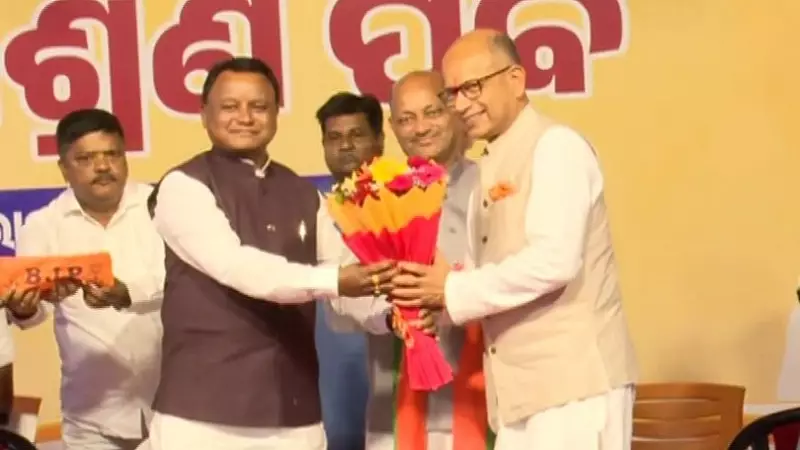
In a dramatic political realignment that could reshape Odisha's political landscape, senior Biju Janata Dal leader and Rajya Sabha member Amar Patnaik has officially joined the Bharatiya Janata Party. The high-profile defection occurred during a formal ceremony at the BJP headquarters in New Delhi on Tuesday.
The former BJD parliamentarian, known for his expertise in parliamentary procedures and financial governance, expressed his decision was driven by a desire to serve the nation under Prime Minister Narendra Modi's leadership. "My primary objective has always been to work for the people and contribute to nation-building," Patnaik stated during the joining ceremony.
Strategic Move Ahead of Crucial Elections
Political analysts are viewing this development as a significant boost for the BJP's electoral prospects in Odisha, where the party has been working to expand its footprint. The timing of Patnaik's switch, coming just months before critical state and national elections, adds considerable weight to the political maneuver.
BJP national general secretary Vinod Tawde, who formally welcomed Patnaik into the party fold, emphasized the importance of this acquisition. "Amar Patnaik's experience and dedication to public service will greatly strengthen our party's capabilities in Odisha," Tawde remarked, highlighting the strategic value of the defection.
From BJD Stalwart to BJP Asset
Patnaik's political journey has been noteworthy. Before entering active politics, he served as a senior accountant general, bringing substantial administrative experience to his parliamentary career. His technical expertise and understanding of governance mechanisms made him one of BJD's most valued parliamentarians.
The former civil servant turned politician has been particularly vocal on issues related to digital governance, financial accountability, and parliamentary reforms. His committee memberships and contributions to legislative debates have earned him respect across party lines.
Impact on Odisha's Political Equations
This defection represents more than just an individual's party switch—it signals potential shifting allegiances in Odisha's political arena. The BJD, which has dominated state politics for over two decades, now faces the challenge of containing further erosion of its leadership cadre.
Meanwhile, the BJP continues to consolidate its position, leveraging high-profile inductions to build momentum ahead of the electoral battles. Patnaik's move follows a pattern of regional leaders aligning with the national party, reflecting the changing dynamics of Indian federal politics.
As political temperatures rise in the eastern state, all eyes will be on how this significant development influences voter perceptions and party strategies in the coming months.






